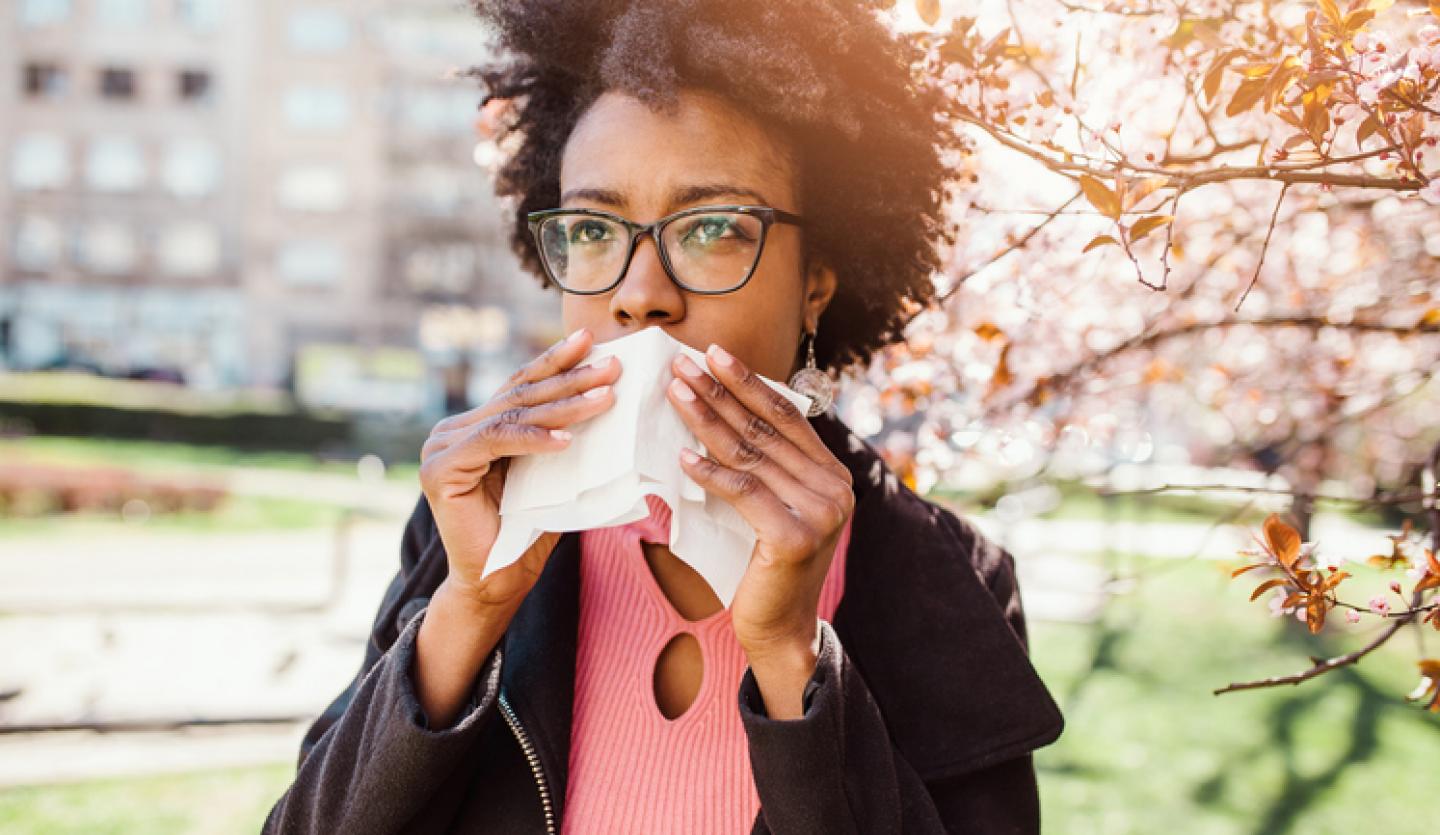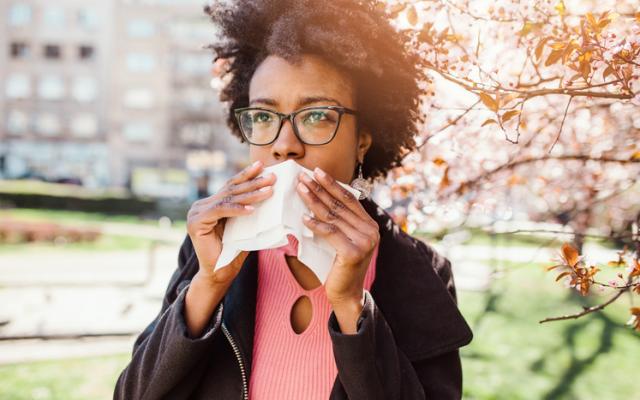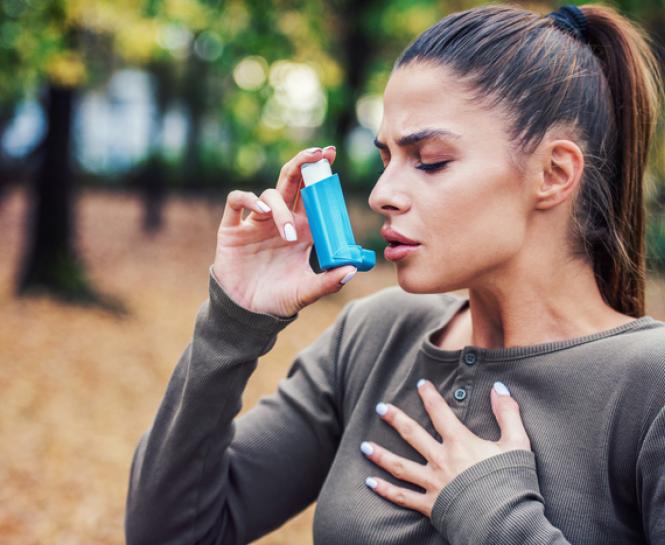According to the Asthma and Allergy Foundation of America, more than 100 million children and adults in the United States experience allergic reactions each year. Allergies can affect people of any age, gender or ethnicity. But you are more likely to develop allergies if your biological parents have allergies.
Mild allergic reactions cause only minor symptoms, such as the itchy eyes and runny nose that come with hay fever. Severe, sometimes life-threatening reactions can cause difficulty breathing and a swollen tongue and require immediate medical attention.
What is an allergic reaction?
An allergic reaction happens when your body’s immune system overreacts to a harmless substance called an allergen. You can come into contact with allergens through your nose, skin, eyes, airway or digestive tract. You may experience respiratory, skin or gastrointestinal problems due to a chemical reaction between the allergen and your body’s immune system.
What causes an allergic reaction?
Your immune system makes specialized cells called antibodies that destroy harmful germs. Sometimes, your body identifies a harmless substance, like pollen or pet dander, as a threat. The first time you become exposed to the allergen, your body makes an antibody specifically designed to destroy the allergen. When you reencounter the allergen, the antibodies release chemicals that trigger an allergic reaction.
You may not react the first time you become exposed to an allergen. Over time, you become more sensitive to the allergen. Even minor exposures can start an allergic reaction.
Common allergens include:
- Cockroaches
- Dust mites
- Foods such as cow’s milk, tree nuts, soy, fish, eggs and wheat
- Insect stings
- Latex
- Medications
- Mold
- Perfumes and household chemicals
- Pet dander (dead skin cells)
- Plants like poison ivy
- Pollen
What does an allergic reaction look like?
Allergic reactions can differ based on the type of allergen. Some reactions affect your skin or respiratory system, while others cause an upset stomach. Regardless of the cause, an allergic reaction will not cause a fever.
Any allergen has the potential to cause anaphylaxis after exposure.
What is anaphylaxis?
Anaphylaxis is a severe allergic reaction with symptoms including:
- Difficulty breathing or swallowing
- Dizziness or fainting
- Flushed or pale skin
- Low blood pressure
- Nausea, vomiting or diarrhea
- Rapid and weak pulse
- Skin reactions, including hives, itching and cold to the touch
- Swollen face, mouth, throat or tongue
- Wheezing
Call 9-1-1 immediately if you or someone around you is experiencing these symptoms.
What are the symptoms of a food allergic reaction?
Food allergy symptoms usually occur within a few minutes to two hours of eating.
Common symptoms include:
- Abdominal pain, including diarrhea, nausea or vomiting
- Difficulty breathing
- Dizziness
- Nasal congestion
- Skin reactions, including itching, hives or dry, scaly patches called eczema
- Swelling of your lips, face, tongue or throat
- Tingling or itching in your mouth
- Wheezing
Food allergies, such as peanut or tree nuts allergy, fish allergy or dairy allergy, can trigger anaphylaxis in some people and requires immediate medical treatment upon exposure.
What are the symptoms of an inhalant allergic reaction?
Inhalants are substances you breathe into your body, such as pollen, dust mites and pet dander.
Common symptoms include:
- Itchy or watery eyes
- Runny or stuffy nose
- Sneezing
If you have asthma, inhalant allergens can worsen your symptoms, possibly triggering wheezing or shortness of breath.
What are the symptoms of a medication allergic reaction?
Over-the-counter or prescription medications can cause allergic reactions. Antibiotics, insulin, chemotherapy, and painkillers, like ibuprofen and acetaminophen, are common triggers.
Common symptoms include:
- Itchy skin
- Shortness of breath
- Skin rash or hives
- Swelling
What are the symptoms of a latex allergic reaction?
Some people develop latex allergies after repeated contact with natural rubber. Skin irritation is the most common symptom of a latex allergy, and it occurs within minutes of exposure. Some people also experience:
- Difficulty breathing
- Hives
- Itchy nose
What are the symptoms of an insect sting allergic reaction?
Bees, ants, wasps and hornets inject poison into your skin when they sting you, which causes some people to have an allergic reaction.
Common symptoms include:
- Pain
- Redness
- Swelling
- Hives
- Itching
Some people can experience anaphylaxis, which requires immediate medical attention.
Can I get tested for allergies?
Yes. Talk to your primary care physician (PCP) about getting tested. You may need a simple blood test or need to make an appointment with an allergist for more specialized testing.
What are the treatment options for allergies?
Treatment options can include medications and allergy shots. For those prone to experiencing a severe allergic reaction, especially anaphylaxis, your doctor can prescribe a self-injectable epinephrine medication (Epipen) that immediately provides relief while waiting for medical attention.







